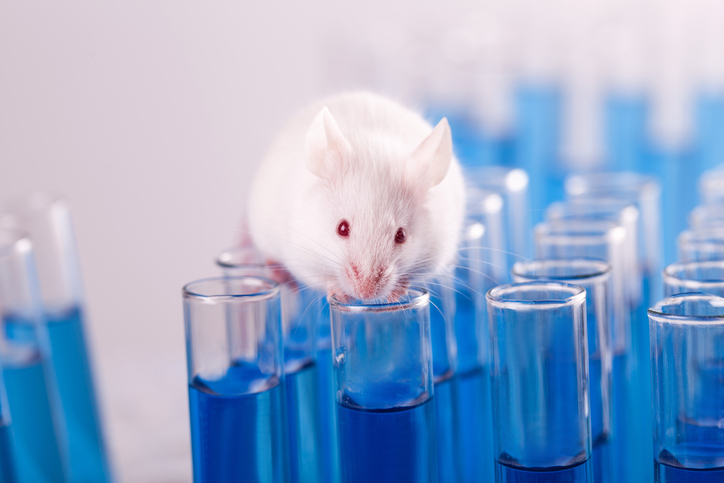Over two decades ago, the UK became the first country to introduce a ban on animal testing for finished cosmetics products. Then in 2013, the ban was expanded to cosmetics ingredients and a sales ban passed in alignment with EU legislation at that time, meaning that companies wishing to bring any new cosmetics products or ingredients to market could no longer use new animal test data to demonstrate their safety.
This marketing ban was hailed as the final nail in the coffin for cosmetics testing on animals, but regulatory bodies have since shamelessly attempted to redefine the ban. Under the guise of the EU’s regulatory framework for chemicals, authorities are still requiring that cosmetics ingredients be tested on animals where there is a possibility of workforce exposure during manufacturing processes. This means that animals continue to die in tests for cosmetics ingredients commonly found in products that are available on the high street, such as anti-dandruff shampoo, perfume, sunscreen, deodorant, and body lotion.
Experimenters may force-feed shampoo ingredients to rats for weeks or months, causing sickness, convulsions, weight loss, and death; dose pregnant rabbits with face cream ingredients to see whether their babies will be deformed; or even allow those babies to be born, only for them to endure the same fate as their mothers.
And it’s not only the EU chemicals regulation that is eroding the cosmetics testing ban. Earlier this month, a High Court judge agreed with the UK government that it was acting legally by adopting the same policy as the EU, post-Brexit, to align equivalent UK chemicals regulations with those of the EU. During the court case, it also emerged that the Home Office had already been issuing licences for testing cosmetics ingredients on animals.


Although the judge ruled in favour of the government on the interpretation of the chemicals and cosmetics regulations, he noted that this did not stop the UK having a policy prohibiting cosmetics testing on animals.
Remarkably, in an apparent U-turn, the government issued a statement announcing that it will not issue any new animal testing licences for the assessment of worker safety for substances used exclusively as cosmetics ingredients.
Though this is welcome news, the government mustn’t waste precious time – and lives – by hesitating to implement a full and immediate ban. All licences currently in place allowing cosmetics ingredients to be tested on animals must be recalled with immediate effect. A change in the law is also required to finally close the loophole that allows cosmetics ingredients that are also used in other products to be forced down the throats of sensitive rabbits, rats, and other animals.
As noted by the government, this isn’t a question of safety – there is a wealth of superior non-animal methods for assessing the safety of cosmetics and their ingredients. Experts can now use advanced technology to predict how an ingredient or combination of ingredients will affect the human body or the impact they may have on the environment – results that tests on rats, rabbits, and fish are unable to match.
The PETA US database of companies that have committed to using only non-animal methods lists over 6,200 brands, including Dove, Herbal Essences, and Aveda. These companies have pledged never to conduct, commission, pay for, or allow tests on animals at any phase of development for ingredients or final products. They’re required to have agreements in place with their suppliers guaranteeing that the ingredients they purchase weren’t tested on animals.
The government is now pondering the future of the cosmetics testing ban and changes that may be needed to update the legal framework. PETA is urging people to contact their MPs and ask for a change in law – safety assessments for cosmetics ingredients imported into or manufactured or sold within the UK must rely only on non-animal data.












